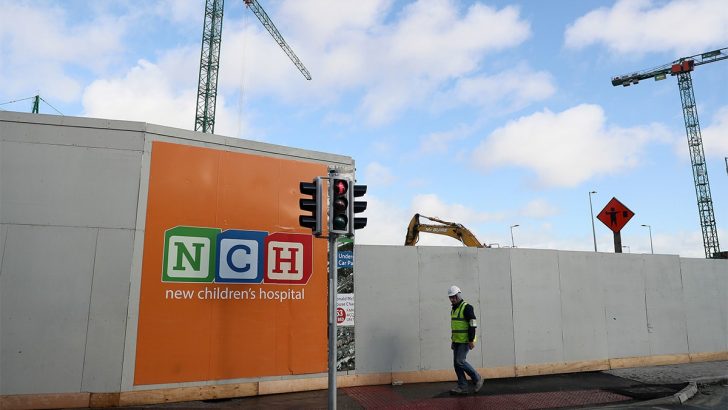Government-funded lobby groups crowd out the ordinary citizen from the decision-making process writes John McGuirk
The cost of the National Children’s Hospital – coming in at a touch over €3billion – has been a source of some frustration to voters over the last year. The cost of the national broadband plan, another €3billion, has infuriated others. When you point out to people that the Government has managed to almost double health spending, while, at the same time, tripling waiting lists, they shake their heads, and wonder how it is possible.
But what if I told you that, during a housing crisis, the Government spends more than twice as much money subsidising non-governmental organisations and lobby groups than it does on building houses?
The budget for the Department of Housing in 2019 is €2.4billion. This represents an increase of over €700m on the previous year as Fine Gael desperately tries to get ahead of the housing situation. Also, this year, the State will provide €5billion to various charities and lobby groups, some of which provide services to the State, but many of whom exist primarily to lobby the Government on political issues.
I’m speaking here about groups like the National Women’s Council, a feminist lobby group that campaigns on issues like abortion and equal pay and provides no services at all to the public. Another example is Pavee Point, which campaigns, and regularly appears in the media, on behalf of travellers. Its most prominent recent achievement was securing a recognition that travellers are not ethnically the same as the rest of us, a policy it is now using in order to lobby for yet more funding for traveller groups. There are too many others to list here, but you can probably think of a few yourself.
No public service
This Government promised, when it came to office, to have a “bonfire of the quangos”, saying that it would get rid of many hundreds of these organisations that exist to provide no public service other than to appear on the radio calling for something or other. And yet, not only have none been abolished, but we spend more on them than ever before. Why is this?
Well, primarily, it’s because of the vital role these organisations play in our politics. The media love them, the government loves them, and most importantly of all, they provide vital jobs and cash for the public relations industry that props up so many of our politicians.
Here’s how it works.
Journalism, these days, is a poorly-paid profession, especially for the newer, younger recruits who fill so many newsrooms. The fastest way to dramatically improve your income, if you are in journalism, is to leave the profession and join a charity or a lobby group, working in communications. When you go for your interview, it is important that you have shown interest in the area the lobby group works in, so young journalists will often work very hard to cultivate a relationship with these groups, promoting their stories and giving them space in the media.
This increases the influence of the lobby group, and in turn increases the employability of the journalist.
These groups are also vital for politicians. What better news story can you get, when you make a decision or an intervention in a debate, than ‘Lobby group welcomes Minister’s decision’ or ‘Lobby group welcomes politician’s comments’.
The media absolutely loves them, because they provide a constant flow of news. When stuck, you can always run another story about how the Women’s Council says more needs to be done on equal pay for women.
Cutting services
These groups have become so powerful now that any attempt to cut their funding is dangerous, because it will be met with a news story about how six human rights organisations condemn a ‘devastating’ cut in funding for children’s disability groups, or whatever. Whether the group concerned actually provides any services doesn’t matter – if you’re not cutting services, you’ll be accused of ‘weakening the voice’ of ‘the most vulnerable’.
The other thing about these groups is that they hunt in packs. How many times do you hear one or other of them on the airwaves saying things like “our campaign is supported by over 50 human rights organisations”? Well, of course it is. All for one, and one for all.
The HSE set up a campaign group to lobby the HSE on smoking laws”
The biggest problem, though, is that they crowd out the ordinary citizen from the decision-making process. Nearly all of these groups come from a left-wing perspective. There is no Government-funded lobby group for taxpayer rights. There is no Government funded taxpayer group opposed to abortion – but plenty in favour. There is no Government funded lobby group for people concerned about immigration – but plenty out there to campaign for migrant rights.
Five billion euro, all poured into this industry. It clogs the airwaves from morning until evening, dictating the terms of the public debate.
It provides a whole array of left-wing political activists with jobs. We even have absurd situations where the Government creates organisations to lobby itself – for example, the HSE set up a campaign group to lobby the HSE on smoking laws. Apparently, they needed to pay someone to tell them to do what they wanted to do already.
Fine Gael promised to do away with all this, but it’s been a completely broken promise. Instead, when you turn on your radio, you’ll hear more and more voices demanding more and more money, or action, on their pet issue. Most of the time, you’ll be paying for it.
We’re all being taken for mugs. The Children’s hospital is a scandal. But Ireland’s Quangocracy? That’s a disgrace.



